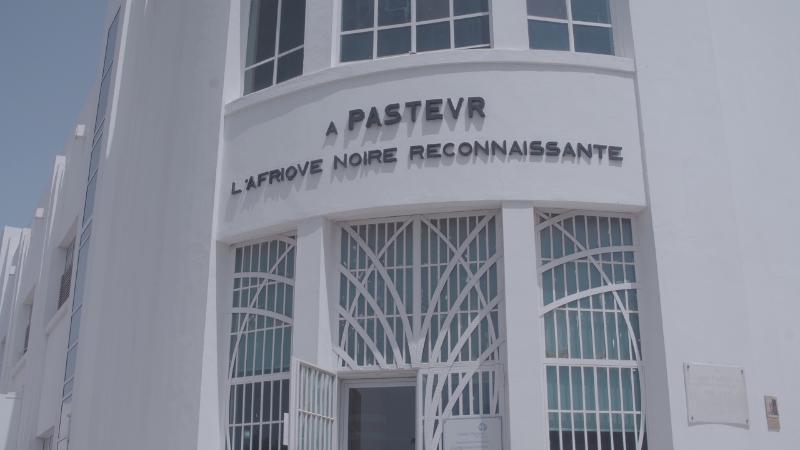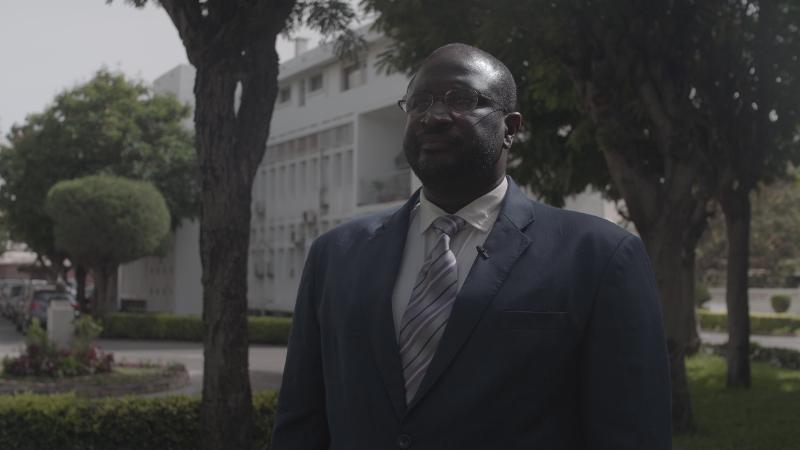An Africa COVID vaccine production plant in Senegal is part of a plan to boost regional healthcare and to make the continent less reliant on imported vaccines
Africa faces a third wave of the COVID-19 pandemic that the World Health Organization fears will be its worst yet. But fewer than 2% of the three billion vaccine doses administered globally have been in Africa. A new vaccine production facility at the Institut Pasteur de Dakar in Senegal will be part of a continent-wide strategy to fill this desperate gap and raise Africa’s capacity to produce vaccines.
“The COVID pandemic has highlighted the need to increase vaccination in Africa,” says Dr Amadou Sall, director of the Institut. “If you want to stop the transmission or limit the severity of the disease, we need to vaccinate more people.”
To increase vaccination rates, Africa needs to secure more doses. New manufacturing facilities on the continent are essential, as Africa currently imports 99% of its vaccines. The new vaccine production facility at the Institut Pasteur de Dakar plans to produce as many as 25 million doses of an approved COVID-19 vaccine a month by the end of 2022, making it a key link in a vaccine strategy developed by the African Union and the Africa Centres for Disease Control and Prevention.
“Africa is fully reliant on other countries to produce vaccines and make them available to African people,” says Ramon Ynaraja, the European Investment Bank’s representative in Senegal. “Many African countries, even those with the funds, simply cannot get access to vaccines on the market. This is why this site in Senegal, which will cover the entire production chain, is so important for the continent.”
Costly and complicated process
Vaccine manufacturing programmes are expensive and complex, even for sophisticated organisations like the Institut Pasteur de Dakar, which has over 80 years of experience developing vaccines and is currently the only facility in Africa producing a vaccine accepted by the World Health Organization. Recently the institute has also been working with the European Investment Bank and Germany’s development bank KfW on the mass production of rapid COVID-19 tests for health care workers.

The Institut Pasteur de Dakar has over 80 years of experience in vaccine manufacturing.
For the European Union and the European Investment Bank, helping Africa to develop its own vaccine production facilities and inoculating people against COVID-19 is an important mission.
To kick-start development of the new facility, the Bank, the European Commission, France and Germany, working together as Team Europe, provided grants, technical assistance and training. Another member of the team, Belgium, is working with Senegal on a plan to develop the country as a regional hub for pharmaceuticals, with the regional government of Wallonia also supporting a Belgian biotech company that will help the institute on capacity building and technology transfer. Other international partners, including the US and the World Bank Group, are also involved and will continue to support the project during the development phase, when the total cost could reach €100 million to €200 million.
“Not only does this reinforce the health system, but also through this particular project it will create jobs, develop capacities in terms of knowhow and workforce, while bringing in new technology,” says Sall.

Amadou Sall, director of the Institut Pasteur de Dakar, says the contributions from the EU and the European Investment Bank are very important at the local level.
A €1 billion package for Africa
The European Investment Bank’s support for the new plant is part of a €1 billion package of investment in vaccines, medicines and health technology in Africa that was launched at the G20 Global Health Summit in Rome this May. The investment package is part of a comprehensive programme to increase the production and accessibility of health products and technologies in Africa.
To boost production, for example, the European Investment Bank and other development banks are working to reduce the financial risk of investment in local pharmaceutical and biotech companies. The Bank is also working with the European Commission to improve investment in Africa’s health sector by Europe’s national development banks.
Technology transfer and support for the creation of regional manufacturing hubs are another important feature of the programme. In addition to the project to develop COVID-19 vaccines in Senegal, the European Commission is discussing potential projects in South Africa, Egypt, Morocco and Rwanda.
An investment in global heath security
Europe’s support in Africa is also about global health care and making sure all countries can deal with pandemics.
“It’s very important that we have this solidarity between African countries and European countries because it helps to build up a global ecosystem for global health security,” says Sall.
This pandemic has shown just how critically important it is to work together.
“What makes this project so important and strategic,” says the EIB’s Ynaraja, “is that, by developing the full production chain in Senegal, when the COVID pandemic is over there will already be a next-generation vaccine plant in place to use in the next pandemic.”
